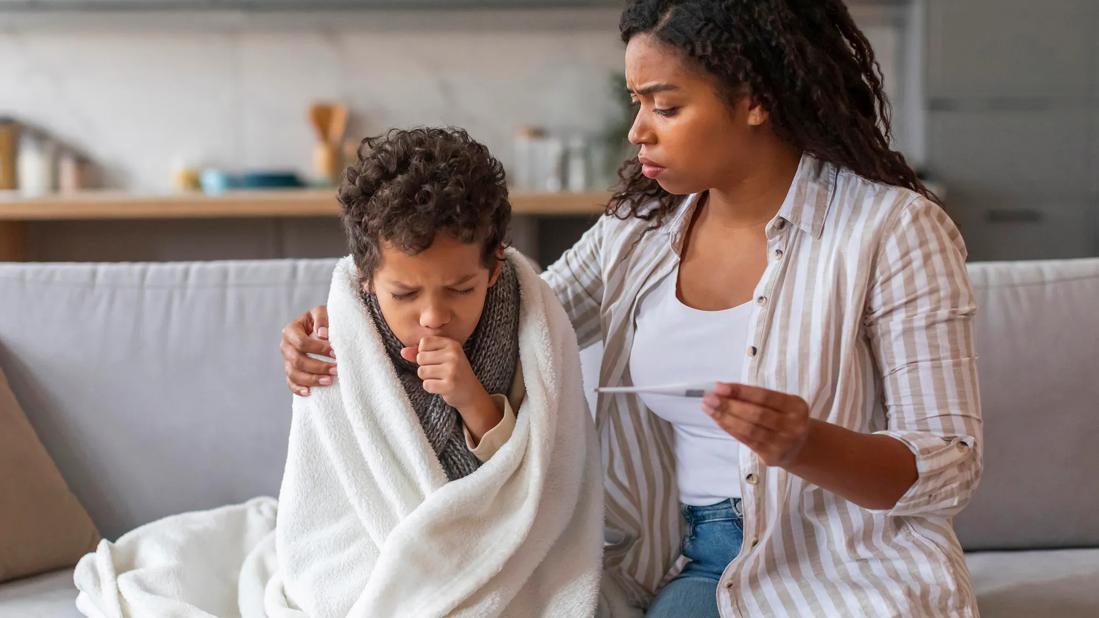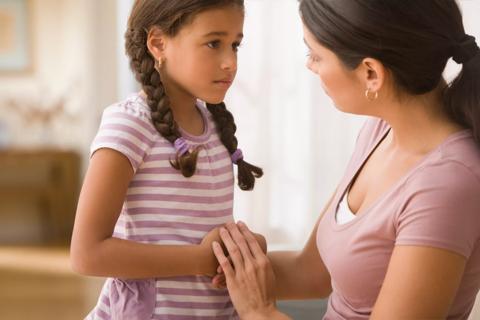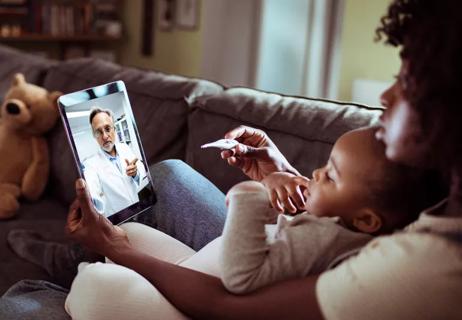The emergency room is for serious medical issues; urgent care can help when you can’t get a quick appointment with your child’s doctor

When your child spikes a fever or takes a tumble, it can be hard to know where to turn. Do they need to go to the ER or urgent care? Or should you hold out for an appointment with their doctor? Kids can’t always communicate how they’re feeling, which can make it that much harder to tell how serious their condition is.
Advertisement
Cleveland Clinic is a non-profit academic medical center. Advertising on our site helps support our mission. We do not endorse non-Cleveland Clinic products or services. Policy
Pediatrician Richard So, MD, shares when to take your child to the emergency room, when urgent care is the better choice and when you can wait for a trip to their pediatrician’s office.
Take your child to a hospital emergency room for serious injuries and medical situations. Here’s a general breakdown of when to use various types of medical services:
Sometimes, it’s clear what constitutes a medical emergency, like your child having trouble breathing or being severely injured. Other times, it’s not as straightforward — and in those cases, you may want to call your pediatrician’s office to ask.
Most doctors’ offices have an answering service or an option that allows you to speak to someone — like a nurse or an on-call doctor — during off-hours, like at night and on the weekend.
“In situations where time is of the essence, seek emergency attention right away,” Dr. So reinforces. “If you’re unsure about the severity of your child’s illness or injury but can’t reach a medical professional to ask, then it’s better to be safe than sorry.”
Advertisement
Dr. So walks us through some of the most common types of pediatric emergencies that warrant a visit to the ER.
When your child is having trouble breathing, they need emergency help. Seek immediate treatment if they:
If your child has been dealing with a cold or other illness, breathing troubles are often a sign that it’s escalated to a condition like pneumonia or bronchiolitis.
“Fast or labored breathing is the No. 1 thing we look for after any cold,” Dr. So states. “If you call your pediatrician’s office to ask about it, they’re likely to send you to the emergency room.”
One more note: If your child has severe difficulty breathing, starts turning blue (cyanosis) or passes out, call 911 or emergency services instead of taking them to the emergency room yourself.
“Ambulances and mobile care teams have medical equipment on board that allows them to start treating your child sooner than if you drove them to the ER on your own,” he explains.
The ER should be your first stop if your child has been hurt by a fall or other type of significant impact — like if they take a bad spill off a bike or fall down a flight of stairs. Trauma-related injuries that warrant a trip to the ER include:
If your child loses consciousness, has severe bleeding or has sustained an injury that affects their neck or back, don’t move them. Call emergency services instead of going to the ER yourself.
But what about when your child takes a spill and you can’t tell whether they’re hurt? Let’s say your infant rolls off the changing table or your child takes a bad blow in a football game.
Advertisement
“Kids can sometimes be injured without showing immediate signs of distress,” Dr. So explains. “In these cases, it’s best to call your pediatrician’s office to ask for guidance.”
A fever alone isn’t always a medical emergency, even if the number on the thermometer seems high.
“It’s understandable to be afraid of a high number,” Dr. So acknowledges. “But a fever isn’t an illness in itself. It’s a sign that something is going on, like that your child’s body is fighting off an infection.”
So, how can you tell when a fever is an emergency? Head to the ER for:
Be sure you know the best way to take your child’s temperature for accurate results — and so that you can report them to healthcare providers as needed.
Dehydration in kids can escalate quickly, making it a medical emergency that requires quick treatment. Symptoms include:
Advertisement
“When children become severely dehydrated, they need emergency treatment to receive IV fluids,” Dr. So says.
Seizures are typically medical emergencies that should be treated in a hospital setting.
There are times when it may be OK to take your child to the ER on your own after a seizure, like if they’ve had them before and seem stable afterward. But call 911 instead if your child:
“Oftentimes, children recover quickly from febrile seizures, which are the type associated with fevers,” Dr. So says. “But it’s always important to have your child assessed to figure out the cause.”
Yes, urgent care has “urgent” in its name, but don’t confuse urgency with emergency.
“Urgent care is the place to go for illnesses and injuries that are serious but not life-threatening,” Dr. So explains. “Think ear infections, sinus infections, sprains and strains, and minor cuts and burns.
It’s sort of like the middle step between the emergency room and your pediatrician’s office. If you can’t get an appointment with your child’s doctor within a day or two, head to an urgent care facility instead — especially if their symptoms aren’t relenting or are starting to concern you.
Advertisement
Here’s the tough part: Urgent care services differ depending on where you live. In your town, for example, urgent care may offer services like stitching up wounds and X-raying broken bones, while the location a few towns over may not.
“It’s always good to research ahead of time what services your local urgent care does and doesn’t provide,” he advises. “That way, when an illness or injury occurs, you already have a sense of what your options are.”
If your child has minor aches, pains, bumps or bruises but seems stable, schedule a visit with their pediatrician or family doctor.
But how can you tell if what they’re experiencing is, in fact, minor? The telltale sign that they’re doing OK is if they’re generally able to go about their daily routine, as far as activities like eating, playing and sleeping are concerned.
Remember: You can always call your child’s doctor if you’re not sure. And, in fact, you should call. That’s what they’re there for!
“If you have a concern, we want to hear from you,” Dr. So encourages. “We want to help you, and we want to help your kid feel better. And sometimes, all you really need is a little bit of expert insight into what might be going on and what you should do about it.”

Sign up for our Health Essentials emails for expert guidance on nutrition, fitness, sleep, skin care and more.
Learn more about our editorial process.
Advertisement

An allergist can help you make a plan that includes information about what to do in case of an allergic emergency

Lead with empathy, involve other caregivers, and teach them how insulin helps them live a long and healthy life

Severe and debilitating headaches can affect the quality of your child’s life

Asthma-proof your home, keep notes and (try to) be patient with long-term treatments

Talk to your pediatrician; early treatment is key

Why kidney stones in kids are on the rise (and what to watch for)

How to know when a stomachache is something more serious

A Q&A to prepare you and your child for syncope and its associated seizures

Even small moments of time outdoors can help reduce stress, boost mood and restore a sense of calm

A correct prescription helps your eyes see clearly — but as natural changes occur, you may need stronger or different eyeglasses

Both are medical emergencies, but they are very distinct events with different causes